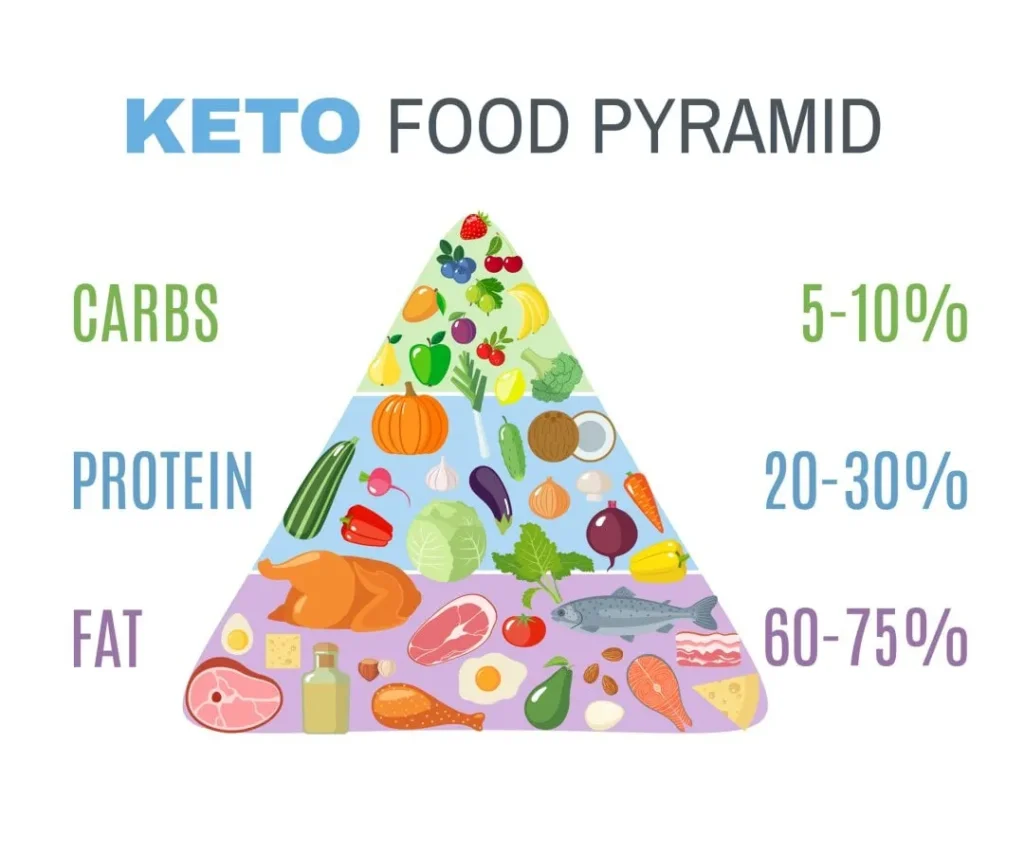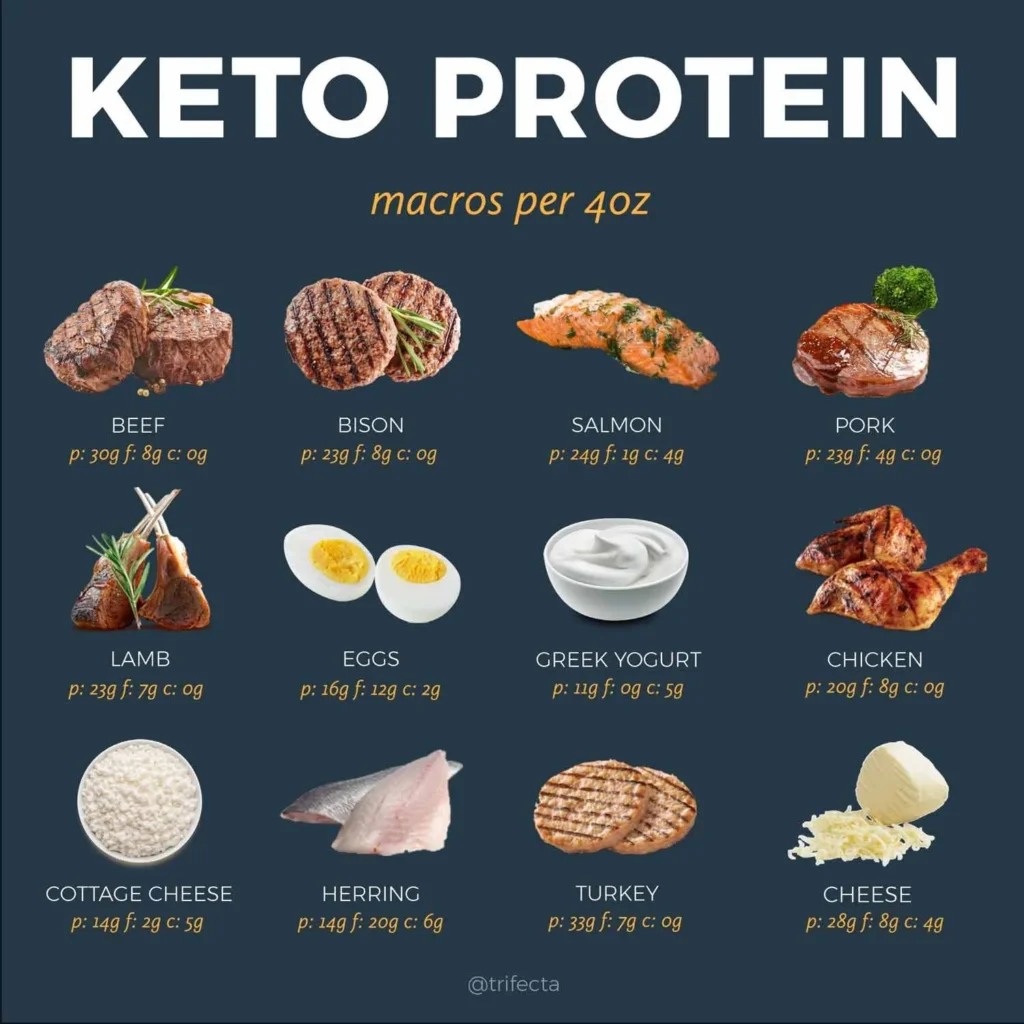Navigating PCOS with the keto diet: What You Need to Know
Polycystic Ovary Syndrome (PCOS) is a common hormonal disorder that affects women of reproductive age. It is characterized by irregular periods, high levels of male hormones (androgens), and small cysts on the ovaries. PCOS can cause a range of symptoms, including weight gain, acne, and infertility.
One of the most effective ways to manage PCOS is through diet and lifestyle changes. The ketogenic diet, or keto diet, has gained popularity in recent years for its ability to help with weight loss and improve metabolic health. This low-carb, high-fat diet may also be beneficial for women with PCOS. In this article, we will explore how the keto diet can help women with PCOS manage their symptoms and improve their overall health.
How Does the keto diet Work?
The keto diet is a high-fat, low-carb diet that is designed to put the body into a state of ketosis. Ketosis is a metabolic state where the body burns fat for fuel instead of carbohydrates. By restricting carbohydrates and increasing fat intake, the keto diet can help the body become more efficient at burning fat for energy. This can lead to weight loss, improved insulin sensitivity, and better hormone balance.
For women with PCOS, insulin resistance is a common underlying issue. Insulin is a hormone that helps regulate blood sugar levels, but in women with PCOS, the body may not respond properly to insulin. This can lead to high blood sugar levels, weight gain, and other symptoms of PCOS. By following a keto diet, women with PCOS can improve their insulin sensitivity and help regulate their blood sugar levels.
Benefits of the keto diet for PCOS
There are several potential benefits of the keto diet for women with PCOS. Some of the key benefits include:
1. weight loss: The keto diet can help women with PCOS lose weight by promoting fat burning and reducing appetite. This can lead to improvements in insulin sensitivity and hormone balance.
2. Improved Insulin Sensitivity: By reducing carbohydrate intake, the keto diet can help improve insulin sensitivity in women with PCOS. This can help regulate blood sugar levels and reduce the risk of developing type 2 diabetes.
3. Hormone Balance: The keto diet may help balance hormone levels in women with PCOS by reducing levels of insulin and androgens. This can lead to improvements in menstrual regularity and fertility.
4. Reduced Inflammation: The keto diet is low in inflammatory foods, such as sugar and processed carbohydrates. By reducing inflammation in the body, women with PCOS may experience improvements in symptoms such as acne and mood swings.
5. Increased Energy Levels: Many women with PCOS report increased energy levels and improved mental clarity when following a keto diet. This can help with day-to-day activities and overall quality of life.
Tips for Navigating PCOS with the keto diet
If you are considering trying the keto diet to manage your PCOS, here are some tips to help you get started:
1. Consult with a healthcare provider: Before starting any new diet or lifestyle changes, it is important to consult with a healthcare provider. They can help you determine if the keto diet is right for you and provide guidance on how to safely follow the diet.
2. Start slowly: If you are new to the keto diet, it can be helpful to ease into it gradually. Start by reducing your carbohydrate intake and increasing your fat intake slowly over time. This can help your body adjust to the changes and reduce the risk of side effects such as the “Keto flu.”
3. Focus on whole foods: To get the most benefit from the keto diet, focus on eating whole, nutrient-dense foods such as meat, fish, eggs, nuts, seeds, and non-starchy vegetables. Avoid processed foods and sugar, as these can hinder your progress on the diet.
4. Stay hydrated: Drinking plenty of water is important when following the keto diet, as it can help prevent dehydration and support your body’s natural detoxification processes. Aim to drink at least 8-10 glasses of water per day.
5. Monitor your progress: Keep track of your symptoms, weight, and other health markers while following the keto diet. This can help you see how the diet is affecting your PCOS and make adjustments as needed.
FAQs about Navigating PCOS with the keto diet
Q: Is the keto diet safe for women with PCOS?
A: The keto diet can be safe for women with PCOS, but it is important to consult with a healthcare provider before starting the diet. Some women with PCOS may have underlying health conditions that could be affected by the keto diet, so it is important to get personalized advice from a healthcare provider.
Q: How long does it take to see results from the keto diet for PCOS?
A: The amount of time it takes to see results from the keto diet can vary from person to person. Some women with PCOS may see improvements in symptoms such as weight loss and menstrual regularity within a few weeks of starting the diet, while others may take longer to see results. It is important to be patient and consistent with the diet to see the best results.
Q: Can the keto diet help with fertility in women with PCOS?
A: The keto diet may help improve fertility in women with PCOS by balancing hormone levels and promoting weight loss. However, fertility is a complex issue and there are many factors that can affect a woman’s ability to conceive. It is important to consult with a healthcare provider if you are trying to conceive while following the keto diet.
Q: Are there any potential side effects of the keto diet for women with PCOS?
A: Some women with PCOS may experience side effects such as the “Keto flu” when starting the diet, which can include symptoms such as fatigue, headache, and irritability. These side effects are usually temporary and can be managed by staying hydrated and getting plenty of rest. It is important to listen to your body and make adjustments as needed while following the keto diet.
In conclusion, the keto diet may be a beneficial way for women with PCOS to manage their symptoms and improve their overall health. By following a low-carb, high-fat diet, women with PCOS can improve insulin sensitivity, balance hormone levels, and promote weight loss. If you are considering trying the keto diet for PCOS, be sure to consult with a healthcare provider and make gradual changes to your diet. With patience and consistency, the keto diet can be a valuable tool in navigating PCOS and improving your quality of life.


